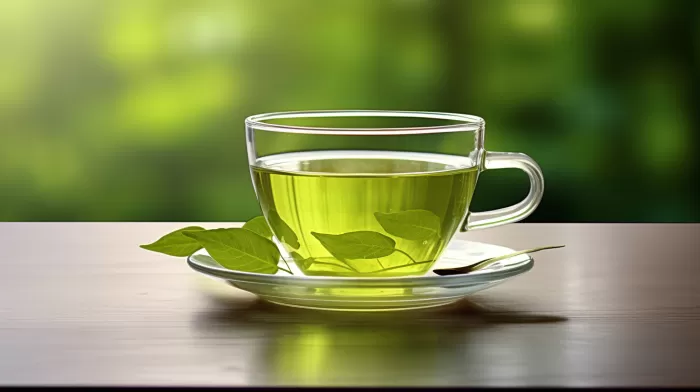Hepatitis infections are notorious for causing liver cancer and cirrhosis – a condition where the liver becomes scarred and loses its function. One way to safeguard your liver and fight off hepatitis C virus (HCV) is to indulge in a tasty beverage: green tea. Research in Germany has shown that a natural component found in green tea, called epigallocatechin-3-gallate (EGCG), can prevent HCV from entering liver cells. In addition, this compound may help liver transplant patients avoid HCV infection.
HCV is a common cause of chronic liver disease, and frequently leads to liver transplants. According to the World Health Organization, 170 million people around the world suffer from this viral infection. Furthermore, studies have revealed that approximately 2% of the entire global population has HCV. In some countries, this rate is now as high as 20%.
###The Miracle of EGCG
Researchers at the Hannover Medical School in Germany focused their study on green tea’s catechins. These are natural chemicals that function as antioxidants and have been recognized for reducing the risk of both viral infections and cancer. Among these catechins, EGCG is the most abundant and powerful antioxidant.
Sandra Ciesek, one of the researchers at the Hannover Medical School, explains that “green tea catechins such as EGCG and its derivatives epigallocatechin (EGC), epicatechingallate (ECG), and epicatechin (EC) have been shown to exhibit antiviral and anti-oncogenic properties. Our study further explores the potential effect these flavonoids have in preventing HCV reinfection following liver transplantation.”
Specifically, the research demonstrated that EGCG can block the entry of HCV into liver cells. It is believed that this effect happens due to the compound providing some sort of benefit to the liver cells themselves. Furthermore, the study revealed that EGCG, in some way or another, inhibits viral attachment to membranes.
Ciesek explains that “the green tea antioxidant EGCG inhibits HCV cell entry by blocking viral attachment and may offer a new approach to prevent HCV infection, particularly reinfection following liver transplantation.”
###Other Health Benefits of Green Tea
Green tea, which originated in China, has been recognized for its medicinal use for centuries. Many health professionals today claim that green tea drinkers have a lower risk of developing heart disease. One study found that consuming four or more cups of green tea each day could improve cardiovascular health, offering taxonomical support for this popular theory.
Green tea reportedly boosts weight loss as well. The drink contains antioxidants that help increase metabolism, allowing a faster rate of fat breakdown in the body. Additionally, green tea consumption has been said to potentially decrease the risk of developing neurodegenerative diseases such as Alzheimer’s and Parkinson’s. It is thought that this could be due to the bioactive compounds present in the tea, which have various protective effects on the brain.
Green tea can also improve dental health and reduce the risk of infection. Catechins – the natural component earlier discussed – have been found to kill bacteria and inhibit viruses such as influenza, ultimately lowering the risk of infections. Finally, green tea can have a positive impact on your mood by increasing your sense of calm and relaxation, thanks to the natural chemical, L-theanine.
###A Daily Dose of Green Tea
Considering green tea’s many potential health benefits, it’s worth incorporating this beverage into your daily routine. Aim for three to four cups per day, which has been cited as an optimal amount for gaining health benefits. However, instant green tea is not always the best source of quality tea, as brewing loose leaves tends to offer ideal freshness and a more robust flavor.
Keep in mind that consuming too much green tea can lead to potential side effects. People who have stomach problems, heart issues, or kidney disorders should not indulge in excessive amounts of green tea. Additionally, combining green tea with stimulant drugs can cause problems with blood pressure and heart rate, while drinking green tea along with medications such as antibiotics, birth control pills, or certain blood thinners may decrease its effectiveness.
Always consult your physician before making any drastic changes to your diet or consuming large amounts of green tea on a daily basis.
###Conclusion
With its numerous health benefits and ability to prevent hepatitis C virus from entering liver cells, green tea is an excellent addition to your diet. While it’s important to be mindful of potential side effects and consult a healthcare professional before drastically increasing your green tea consumption, this simple beverage may play a significant role in promoting overall wellness and disease prevention.



![8 Simple Rules to Refresh Your Body with a Healthy Cleanse [See Pictures]](https://naturalhealthreserve.com/wp-content/uploads/2024/01/8-rules-healthy-cleanse-slideshow-300x168.webp)